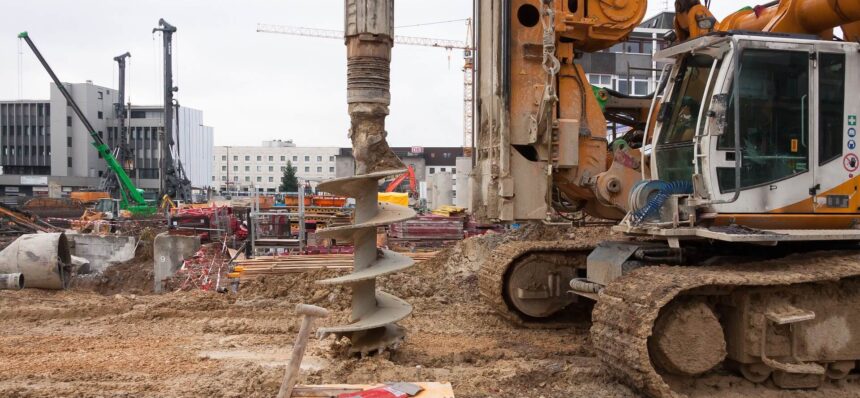1. EMPOWERING THE TEAM
The array of specialists required to deliver on your construction project is incredibly diverse.
Think about it: engineers, contractors, field workers, architects. And they’re ALL professionals. What you’ve got to remember, is to get the best out of your team, just LET THEM DO THEIR JOB. It’s not complicated.
With the right team at your disposal, these professionals will do everything within their power to achieve a successful project. It’s in their interest to help you achieve the best possible result from your project goals.
Build a good relationship with your team. Be authentic. Don’t micro-manage them. But help them succeed (which means you’ll succeed). Ditch the hierarchy where possible. Make everyone feel that they’re a critical link in the project engine. Because in fact, they are.
2. GOING THE ‘NO TECHNOLOGY’ ROUTE
Sure, we may have a vested interest in recommending technology, but really, it’s just common sense today, and it’s where the construction industry (in fact, where EVERY industry) is heading.
Too often, construction companies simply ignore technology available to them due to the perceived up-front costs and also a chronic inability to embrace change. The only outcome this mindset will achieve is your business will decline….and most likely, very fast.
At a minimum, by investing in technology (and it doesn’t need to be costly) smart construction companies can expect:
-
Better workforce management & utilization outcomes
-
Better ROI for your field workers
-
Improved workflow processes
-
A vastly superior edge to your competitors
-
Business insights like never before
-
Increased speed of project completion
-
Boost in revenue and a healthier bottom line
Construction companies who continue to ignore the power of technology, have zero competitive edge today. It’s that simple. They’re operating on a platform of loss: lost time, productivity, jobs, worker engagement, income. Think about it.
And on technology, the other big mistake is going the ‘cheap or free app’ route. Low or no cost app solutions to manage your field workers or implement change to your workflow processes pose a huge risk. The sound good in theory, but you have little to no idea about:
-
Where your data is housed
-
How secure your data is
-
What the legal ramifications are if your data is compromised
-
Little knowledge around backup and disaster recovery
-
If your data is lost, how do you retrieve it?
Improve your approach to managing your construction business, by taking a broad view of the technology available today. Look at where your business could improve processes and outputs. And match this with the right technology for your business. Oh, and do it TODAY.
3. BEING LAME WITH YOUR NUMBERS
This one comes in many iterations:
-
Underestimating your labor costs: a difficult one to estimate, considerations include how many hours & workers the job requires, the experience of the workers, whether subcontractors will be needed, hourly rates & overtime
-
Soft costs: those less obvious costs like permits, power, dumpsters, adding tax to materials, preparation of the site
-
Not being diligent with your numbers: making sure everything adds up correctly (yes, it’s true, you need to check your maths!), measurement errors on the plans, being inconsistent with your units of measure
4. COMMENCING CONTRACT CHANGES WITHOUT AGREED COSTS
When a need for a change or variation to your contract arises – and invariably, it will – you will likely feel the pressure to ‘keep moving’ before the altered costs and timeframes for delivery, are agreed with all parties to a project. This can turn into a huge project pitfall.
Once you start authorizing your contractors to proceed with changed contract terms (time and material changes), you leave yourself wide open to be liable for the time and cost of the variation from the original contract – irrespective of how different these costs and timeframes are from the terms at the start of the project.
The best practice is to negotiate the price and variation orders with contractors, document the changes and THEN proceed. A willingness to simply ‘get the job done’ or keep things moving, without an agreed set of altered terms, can come back to bite the construction business badly, later on. It’s just not worth it.
These are just a few pitfalls or worst practices that happen every day on construction sites. Don’t get caught out. Do your research!



